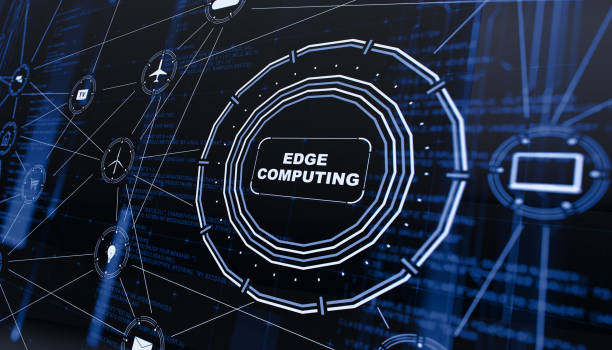Welcome to the world of the Internet of Things (IoT), where even your toaster can connect to the internet and start a conversation with your refrigerator.If you're not familiar with the term, IoT refers to a network of devices that are connected to the internet and can communicate with each other to share data and automate tasks.
Here's A Deal!
From smart homes to self-driving cars, the possibilities of Internet Of Things seem endless, and it's not hard to see why this technology is gaining popularity.
Who wouldn't want to live in a world where your coffee maker starts brewing your favorite blend the moment you step out of bed, or your car drives you to work while you catch up on your emails?
But before you go out and start filling your house with connected devices, there are a few things you need to know. In this blog post, we'll take a closer look at the world of IoT its potential benefits, and some of the challenges that come with it. So, grab a cup of coffee (or have your IoT coffee maker do it for you), sit back, and let's explore the fascinating world of IoT together.
The Best Part!
Opportunities for Internet Of Things
The opportunities for Internet Of Things are practically endless, and we're only just scratching the surface. One of the most promising areas for IoT is smart homes and buildings. With the help of connected devices and sensors, you can control everything in your home from your smartphone or smart speaker. From turning off the lights to adjusting the temperature, you can create a comfortable and convenient living space.
But it's not just about convenience - IoT also has the potential to improve our health and wellbeing. In healthcare, Internet Of Things can be used to monitor patients remotely and provide real-time updates to doctors and caregivers. Imagine wearing a smartwatch that not only tracks your fitness but also monitors your vital signs and alerts you and your doctor if something seems off.
Another exciting opportunity for IoT is in the transportation and logistics industry. With connected vehicles and smart traffic systems, we can reduce traffic congestion, improve road safety, and minimize fuel consumption. Self-driving cars are no longer a thing of the future - they're already here, and they have the potential to revolutionize the way we travel.
Last but not least, Internet Of Things is also making waves in the world of agriculture. With connected sensors and drones, farmers can monitor crops and soil conditions in real-time, making it easier to detect potential issues and optimize crop yields. It's like having a team of tiny helpers in the field, except they're all connected to the internet.
With so many opportunities, it's no wonder that IoT is rapidly gaining traction. But as with any technology, there are also challenges that need to be addressed. So, let's take a look at some of the challenges that come with IoT in the next section.
Challenges for IoT
Despite the exciting opportunities that IoT presents, there are also some significant challenges that must be addressed. One of the most pressing issues is data security and privacy. With so many connected devices, there's a risk that personal information and sensitive data can be compromised.
We've all seen those news stories about hackers taking control of smart home devices or stealing credit card information from online shopping platforms. The last thing you want is a cybercriminal gaining access to your toaster and using it to launch a denial-of-service attack!
Another challenge for Internet Of Things is interoperability and standardization. With so many different devices from different manufacturers, it's important to ensure that they can all communicate with each other seamlessly.
Imagine having a smart home where your Amazon Alexa speaker can't communicate with your Google Nest thermostat, and your Samsung Smart TV can't connect to your Apple HomeKit system. It would be a nightmare!
Power and energy requirements are also a concern for Internet Of Things. With so many connected devices, there's a risk of overloading the power grid and increasing energy consumption. Imagine the impact on the environment if everyone had a smart home with dozens of connected devices running 24/7.
Finally, legal and ethical considerations must be taken into account. As Internet Of Things becomes more prevalent, there are concerns around issues such as liability and accountability. For example, who is responsible if a self-driving car causes an accident? How do we ensure that connected devices are being used in a responsible and ethical manner?
Addressing these challenges will be critical for the long-term success of IoT. In the next section, we'll take a look at some of the future trends in IoT and how they may help to overcome some of these challenges.
Future Trends in IoT
As the Internet Of Things market continues to grow, new trends and technologies are emerging that have the potential to address some of the challenges we've discussed. Here are some of the future trends in IoT to keep an eye on:
Artificial Intelligence And Machine Learning
Edge Computing
With so many connected devices, the amount of data being generated can be overwhelming. Edge computing involves processing data closer to the source, rather than sending it to a centralized data center. This can help reduce latency and improve efficiency.
5G Connectivity
Blockchain
Blockchain technology can provide secure and decentralized data storage and authentication, which could help address the security and privacy concerns we've discussed.
Sustainability
As Internet Of Things devices become more prevalent, there's a risk of increased energy consumption and environmental impact. Future trends in IoT will need to prioritize sustainability, with a focus on energy efficiency and renewable energy sources.
These future trends in IoT are exciting, but they also come with their own set of challenges. For example, implementing AI and machine learning requires significant computing power and data storage, which can be expensive. And while 5G networks will improve connectivity, there are concerns around the potential health risks associated with the technology.
Despite these challenges, the future of Internet Of Things looks bright. As the technology continues to evolve and new trends emerge, we can expect to see even more innovative use cases and applications. Who knows, maybe one day your coffee maker will not only brew your coffee but also place an order for you when it's running low. The possibilities are endless.
Wrap Up
The Internet of Things is an exciting and rapidly evolving field, with both opportunities and challenges. As we continue to develop and improve IoT technology, we must address the challenges and work towards a more connected and sustainable future.




























0 Comments